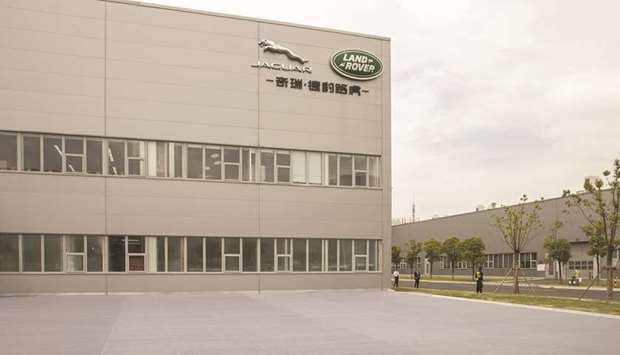As if companies didn’t have enough to worry about, they now must contend with rising pressure from the US on auto imports and the backlash of 5G telecommunications regulation.
In the latest salvos in widening trade hostilities, President Donald Trump gave European and Japanese car manufacturers six months to curb exports to the US and bore down harder on China, barring sales from firms deemed a security risk and threatening to blacklist Huawei Technologies Co from component purchases.
Companies around the world were already struggling against a tide of trade impediments and renewed doubts on the health of the economy. Chinese industrial output slowed more than economists had forecast in April, while US production unexpectedly fell. Bundesbank President Jens Weidmann warned on Thursday that the escalating trade dispute threatens to add “poison” to the world’s economy.
The US trade stance “is adding a layer of complexity to corporates that’s proving very hard to read,’’ said David Page, senior economist at Axa Investment Managers in London. Companies “are finding planning over long-term horizons and business investment very difficult.’’
Trump will give the European Union and Japan 180 days to agree to a deal that would “limit or restrict” imports into the US of automobiles and their parts in return for delaying new auto tariffs, according to a draft executive order seen by Bloomberg.
The administration has determined that imports of cars present a threat to national security by hurting domestic producers and their ability to invest in new technologies, the document shows. People familiar with the matter say Trump is expected to sign the order this week.
The timing couldn’t be worse: Carmakers already are dealing with slumping sales in China, the world’s biggest auto market, intensifying global competition and enormous outlays to develop electric vehicles and self-driving technology.
Europe’s Stoxx 600 Automobiles & Parts Index fell as much as 1.8% Thursday.
Jaguar Land Rover Automotive Plc’s China sales fell more than one-third in the nine months through December, and have continued to slide, the company said on Wednesday. The Sino-US trade war exacerbated the decline, said chief executive officer Ralf Speth, adding that he hoped the “geopolitical issues between America and China can be resolved quickly.”
Koji Ikeya, chief financial officer of Mitsubishi Motors Corp said on a conference call last week that trade friction between the US and China, as well as between the US and Europe, were among the main factors affecting the global auto industry.
In February, Toyota Motor Corp president Akio Toyoda, in his capacity as chairman of the Japan Automobile Manufacturers Association, urged Trump to make a “careful and appropriate decision,’’ saying imported vehicles don’t threaten US national security. Toyota has increased US investment in response to the tariff threats, adding about $3bn to a multiyear plan. Ultimately, increased tariffs are bound to lead to higher prices for consumers.
At Walmart Inc, many products have escaped the stiffest levies so far, and first-quarter results were still strong. But the prospect of more tariffs on Chinese goods could hit them directly, leaving the company and other retailers with the choice between raising prices, or sacrificing profitability.
“We will do everything we can to keep prices low, but increased tariffs lead to increased prices,” chief financial officer Brett Biggs said in an interview on Thursday. “It’s very item- and category-specific. There are some places where as we get tariffs, we will take prices up.” Shifting sourcing “is one of a number of actions that our merchants are considering.”
The comments echoed those of department-store chain Macy’s Inc.
“It is hard to do the math to find a path that gets you to a place where you don’t have a customer impact,” CEO Jeff Gennette said on an earnings call on Wednesday, describing the impact of the US-China trade negotiations as a “stay tuned” situation. The tariffs have already sparked an “inflationary environment,” according to Del Monte Foods Inc CEO Greg Longstreet. Levies on steel and aluminium imports caused canned costs to spike 25%, he said in an interview, while transportation costs and a tight labour market are also driving up prices.
The telecom industry, too, faces a global threat. If Trump bans Huawei from purchasing essential components, the impact would be felt far beyond China’s largest technology company. It could depress the business of American chip manufacturers from Qualcomm Inc to Micron Technology Inc, and potentially disrupt the rollout of 5G wireless networks around the world. Shares of both companies slumped in early US trading.
In Asia, shares of Huawei suppliers, including Sunny Optical Technology Groupand AAC Technologies Holdings Inc, tanked on Thursday. But US-based suppliers could take a hit, too: Huawei has said it devotes about one-third of its budget – some $11bn annually – to the acquisition of American components. It counts 33 US companies among its top 92 suppliers.

The Chery Jaguar Land Rover Automotive Co’s plant stands in Changshu, China (file).
